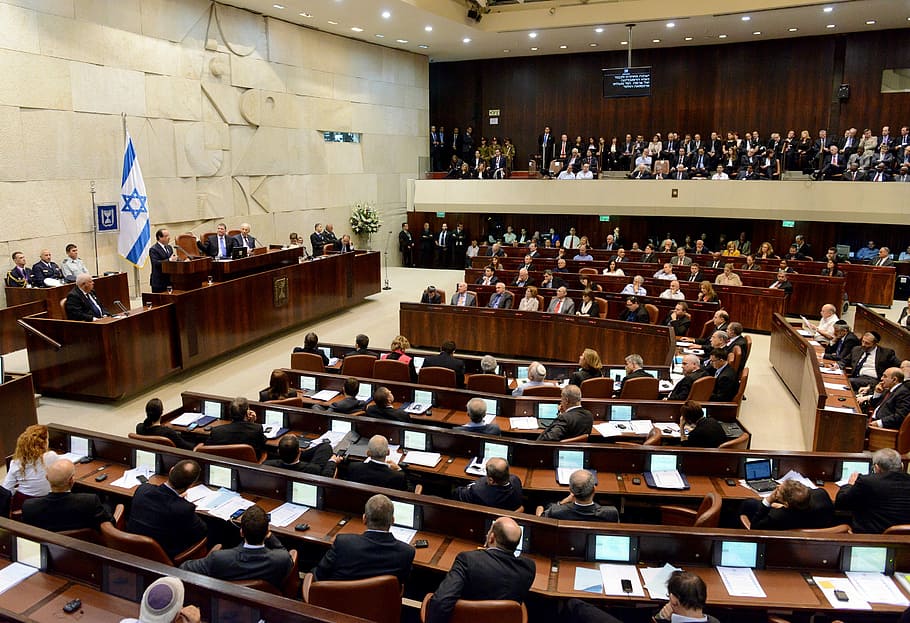Australia/Israel Review
Scribblings: Amnesty’s democracy “smokescreen”
Mar 1, 2022 | Tzvi Fleischer

Amnesty International says Israel is not really a democracy but an apartheid state.
The report the organisation released in early February accusing Israel of “apartheid” makes the following claims to address the obvious point that Israel is actually a democracy with full political and civil rights for all of its citizens:
“While Israeli laws and policies define the state as democratic, the fragmentation of the Palestinian people ensures that Israel’s version of democracy overwhelmingly privileges political participation by Jewish Israelis. In addition, the representation of Palestinian citizens of Israel in the decision-making process, primarily in the Knesset, has been restricted and undermined by an array of Israeli laws and policies.”
The first claim about the “fragmentation of the Palestinian people” is essentially an extremist claim that Israel can only be a democracy if it ceases being a Jewish homeland and becomes a Palestinian majority state. Apparently, as long as the following are not full citizens of Israel, this means Israel is not a democracy: Palestinians of the West Bank – who have their own Palestinian government and could have had their own state if their leaders had just been willing to say yes to reasonable Israeli offers; Palestinians of Gaza – which Israel does not rule over at all; and presumably Palestinian “refugees” from around the world, who Amnesty falsely asserts have a right of return to Israel. This is not really a claim about democracy, but the equivalent of chanting, “From the river to the sea, Palestine will be free.”
The second claim about Palestinian participation in the Knesset being “restricted and undermined” is simply a lie. There are no such “laws and policies” and Israeli Arabs – most of whom do not call themselves “Palestinians” – participate fully in the Knesset, as well as other aspects of Israeli governance. Currently, there are two Arab ministers and one deputy minister in the Cabinet, and an Islamist party in the governing coalition.
Amnesty’s bizarre efforts to deny the existence of Israeli democracy were even more clear-cut in a train wreck of an interview conducted with Amnesty Secretary General Dr. Agnes Callamard and Amnesty Middle East and North Africa research and advocacy director Philip Luther by Lazar Berman of the Times of Israel on Feb. 2. Scrambling to defend the blatant double-standards and hyperfocus applied to Israel by Amnesty, Luther said that “the Israeli state” has “tried to create a smokescreen” around its supposed apartheid policies, and in the same sentence mentions Israel’s “democratic system”, and “judicial institutions that of course then call the state to account,” apparently as examples of this supposed smokescreen.
In other words, Luther, representing Amnesty, basically said Israel’s obvious democracy and rule of law are a deliberate scam – a “smokescreen” – to cover up its true undemocratic nature.
So, do people who systematically and professionally measure democracy in countries around the world detect this supposed false façade of democracy in Israel that Amnesty now says exists?
No, definitely not.
The British-based Economist magazine has a record of being highly critical of Israeli policies. But in mid-February, the magazine’s prestigious Economist Intelligence Unit (EIU) published its annual Democracy Index, and Israel rated highly. It was ranked the 23rd most democratic nation in the world, with a score of 7.97 on the 10 point index. That places Israel ahead of several countries no one questions are democracies – including Spain, Italy, Belgium, Portugal and even the US – and barely behind traditional bastions of democracy, France and Britain, which scored 7.99 and 8.1 respectively.
Israel scored particularly highly on two of the five criteria which make up the Democracy Index – “Electoral process and pluralism” and “Political participation”, and respectably in two others – “Functioning of government” and “Political culture”. Its overall total was pulled down by a lowish score of only 5.88 in the Index’s fifth measure – “Civil liberties.” But that low civil liberties score is at least partly explained by laws in place to deal with Israel’s constant state of conflict with terrorists from Gaza and the West Bank, as well as Iranian-sponsored groups operating from Lebanon and Syria. Without the laws and restrictions necessitated by these conflicts, Israel could well have been in the top 15, and even perhaps have given Australia – ninth in the world with an overall score of 8.9 – a run for its money.
The EIU’s finding is consistent with the other major NGO which measures political and civil rights around the world, the US-based Freedom House. In its Global Freedom Index, Freedom House rates Israel as “Free”.
So agencies which professionally and systematically measure democracy across all nations do not see the façade or “smokescreen” of democracy that Amnesty claims to have detected in Israel.
What this should tell us is that Amnesty’s claims about Israel’s democracy are themselves deliberately misleading. As Elliot Kaufman notes in this edition, it is clear Amnesty set out to find Israel guilty of apartheid – an apartheid the NGO claims to have only just discovered now, 74 years into Israel’s existence, even though the report insists it has been in place since 1948. This is not because anything has changed in Israel, but because of a trend that has spread among left-leaning NGOs to make such a claim since the 2001 Durban UN Conference Against Racism, when the NGOs in attendance, including Amnesty, agreed on an “Action Plan” to promote the “complete isolation of Israel as an apartheid state.”
Israel’s obvious democracy stood in the way of making such a finding. Amnesty had to find some way to explain it away and it did – by making the extreme and false claims in the report cited above, and by labelling it a “smokescreen” – despite the evidence from people who actually research and compare democracies. Similar misleading claims are characteristic of the entire report.
Tags: Amnesty International, Israel, NGOs






